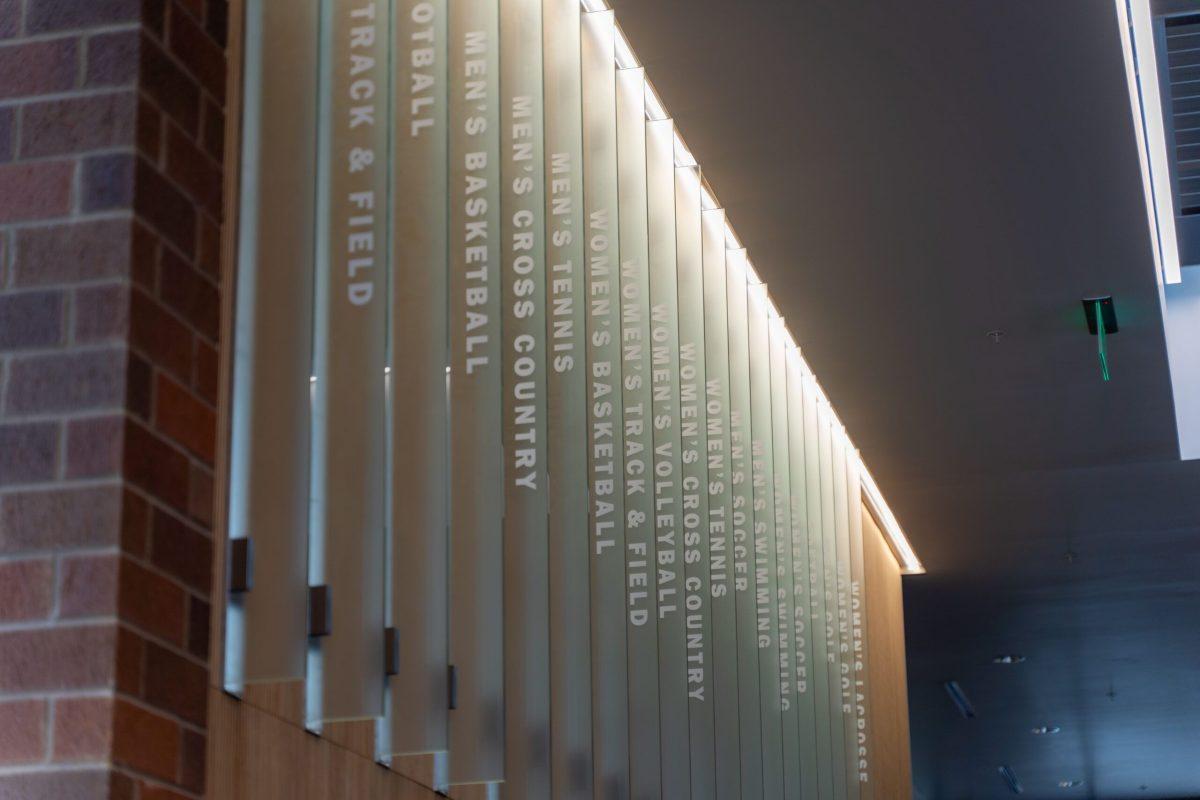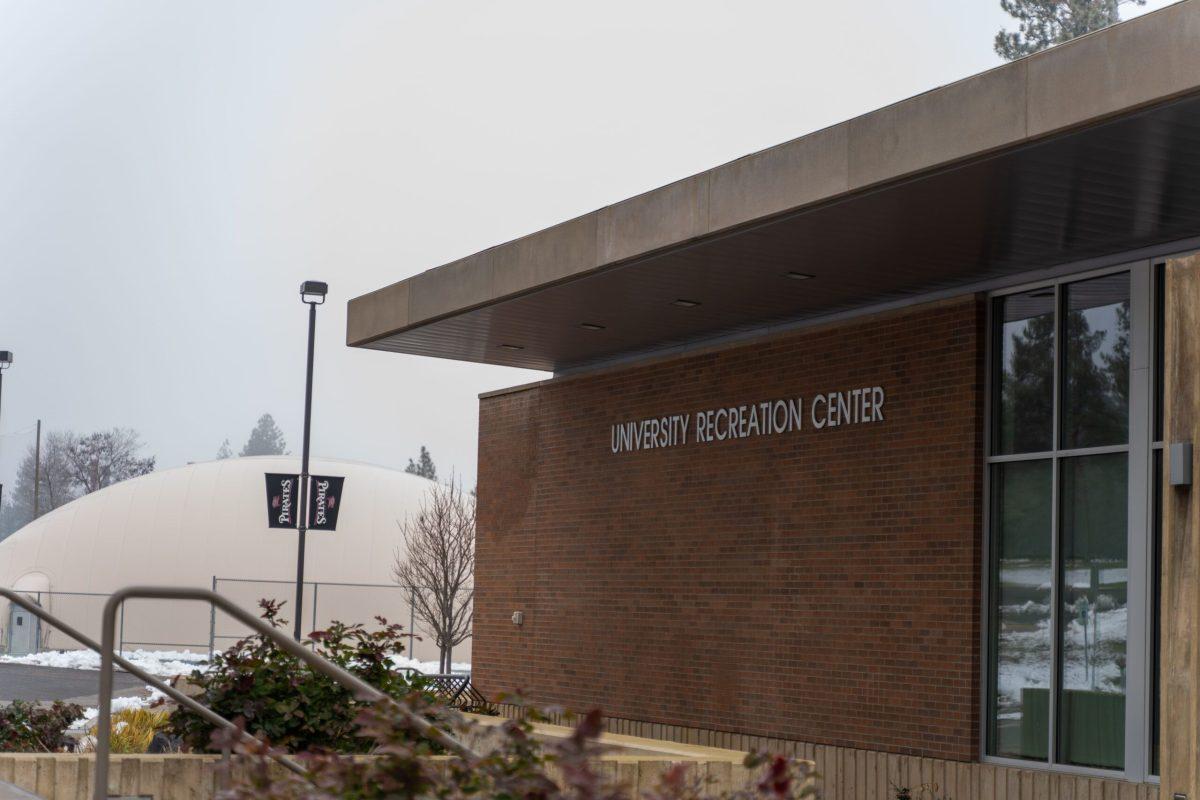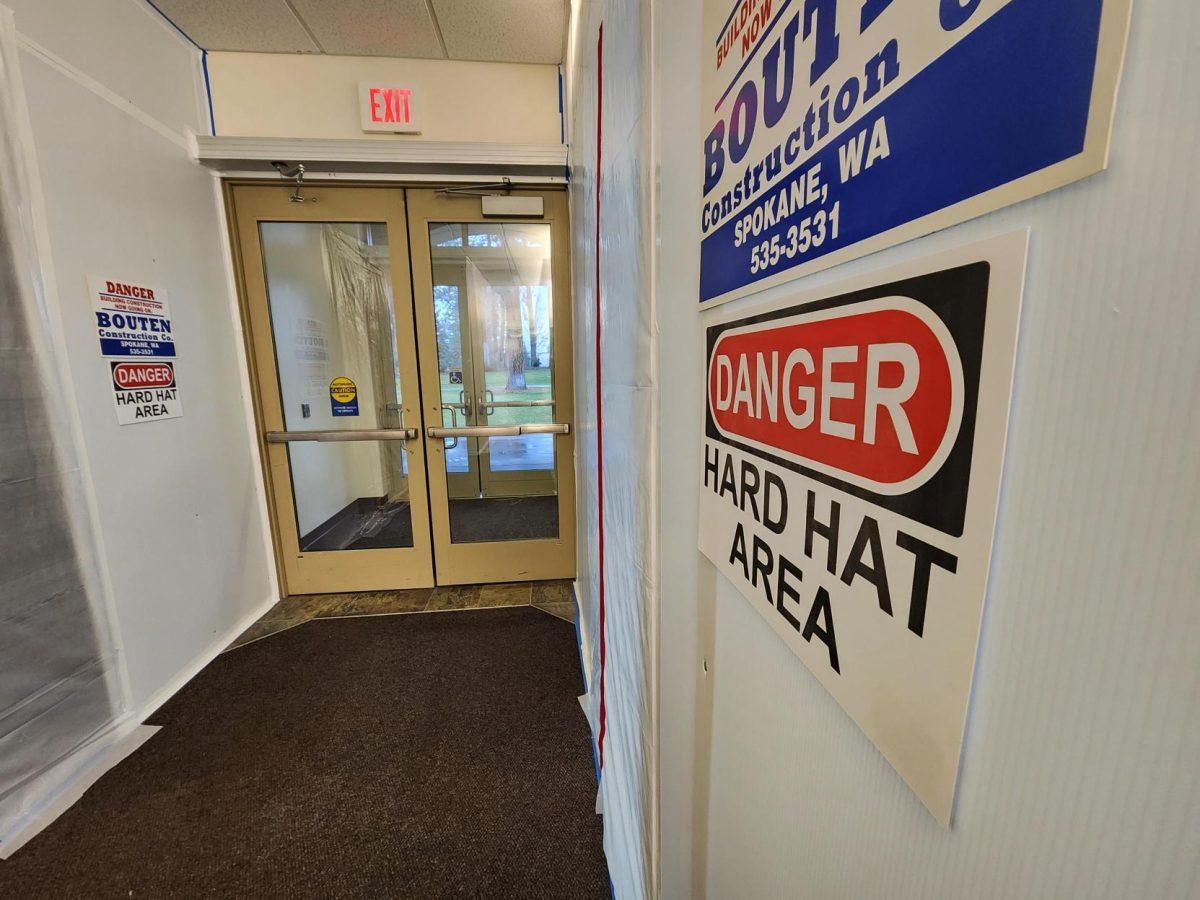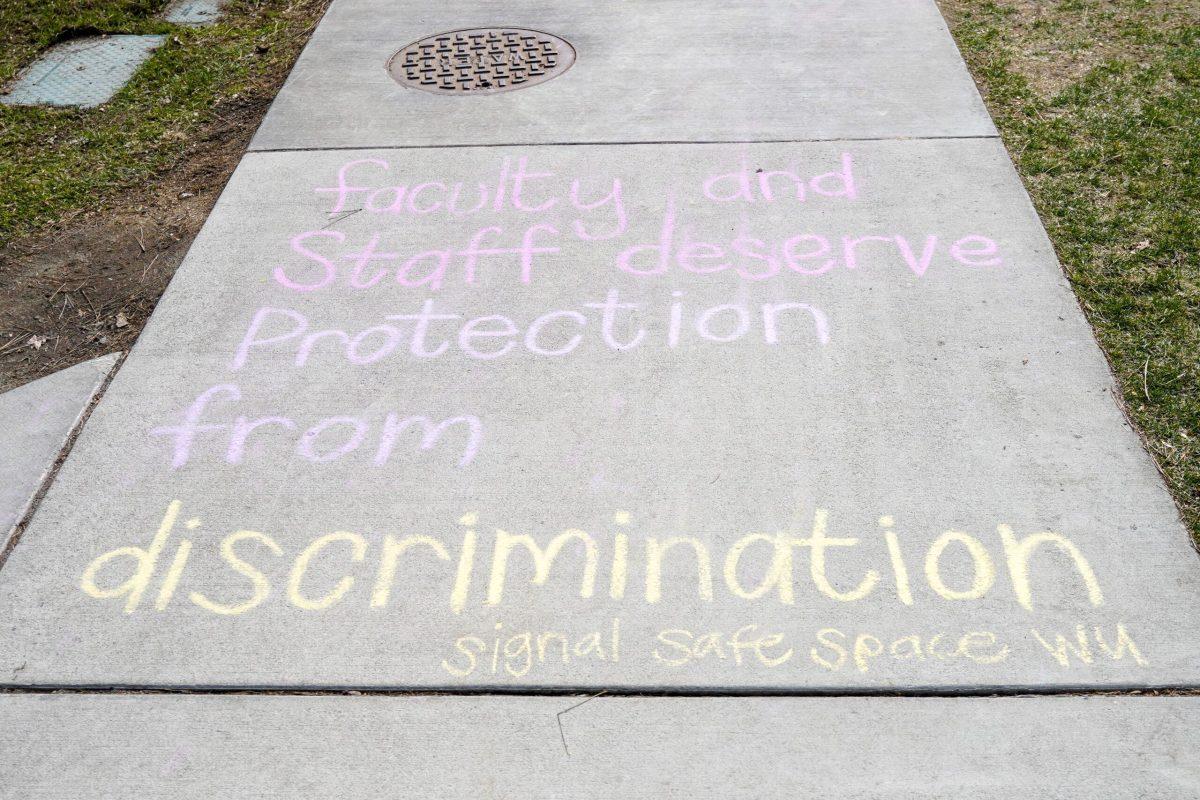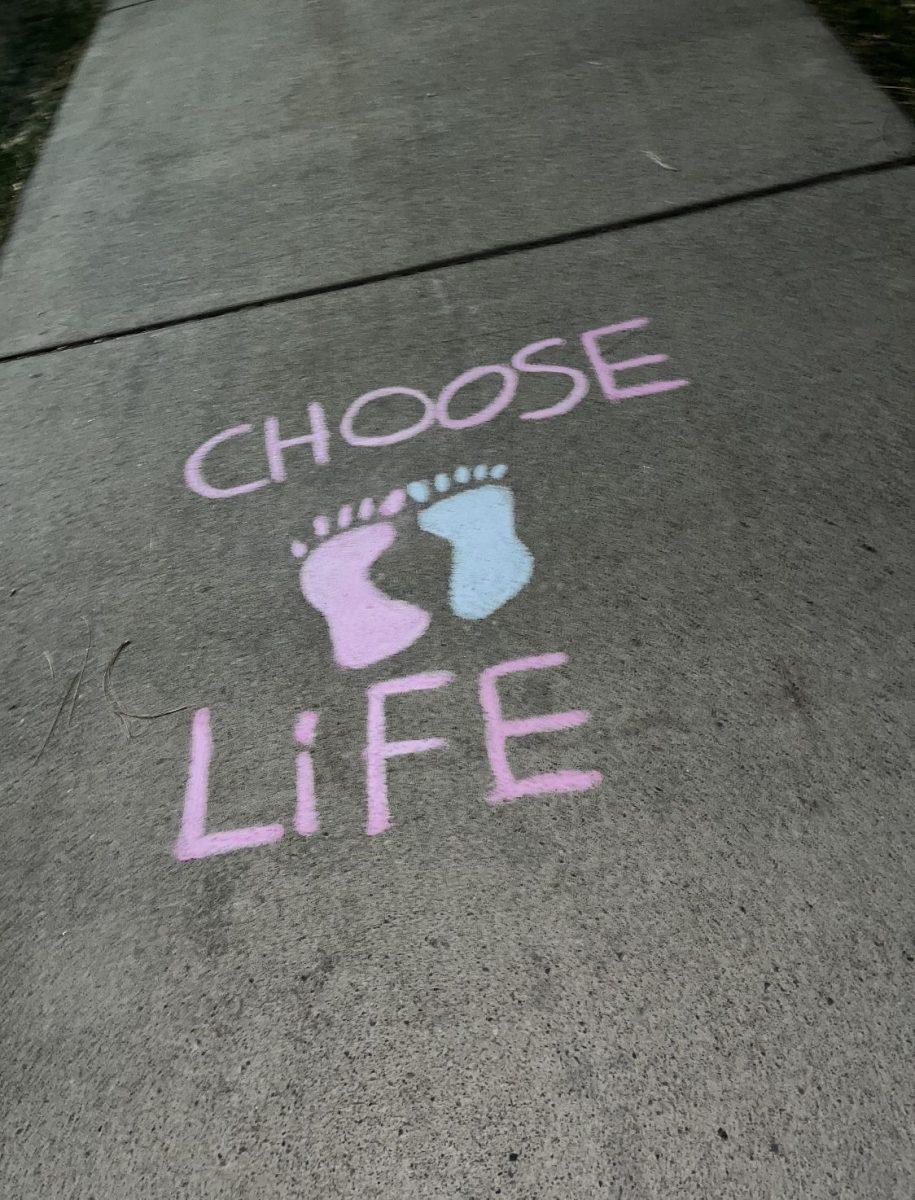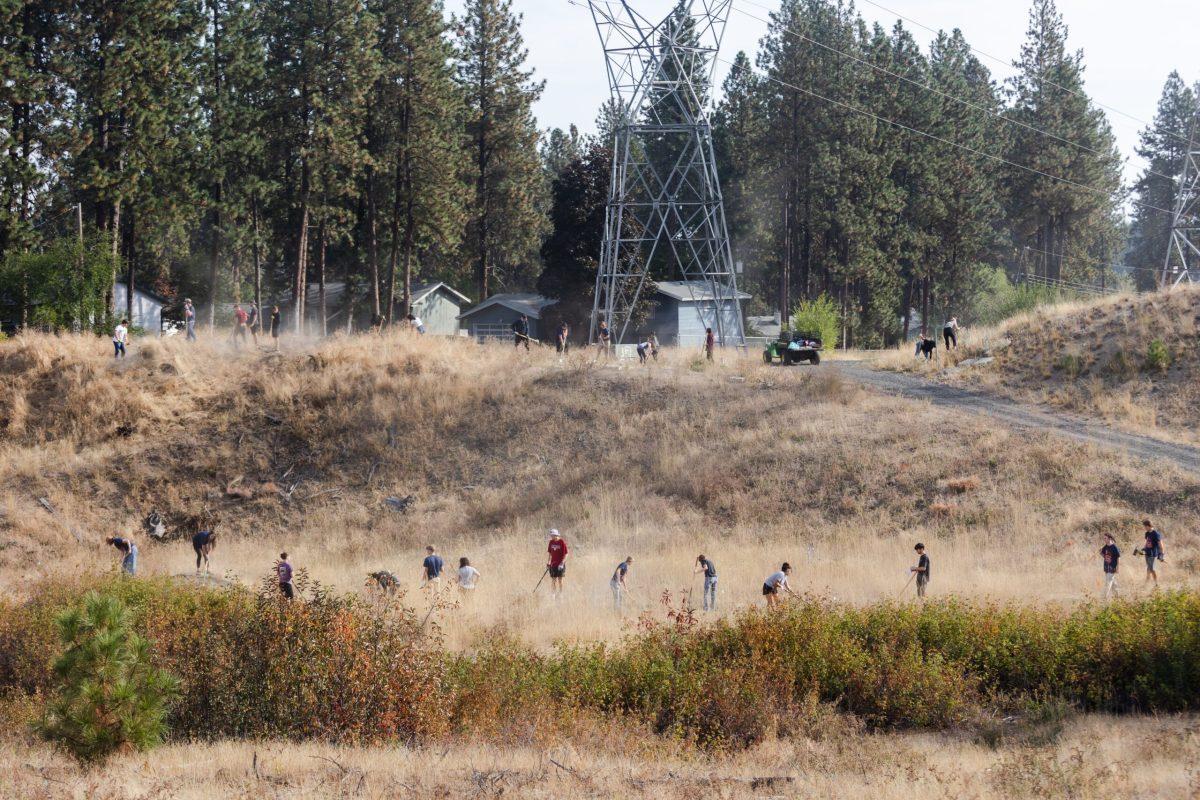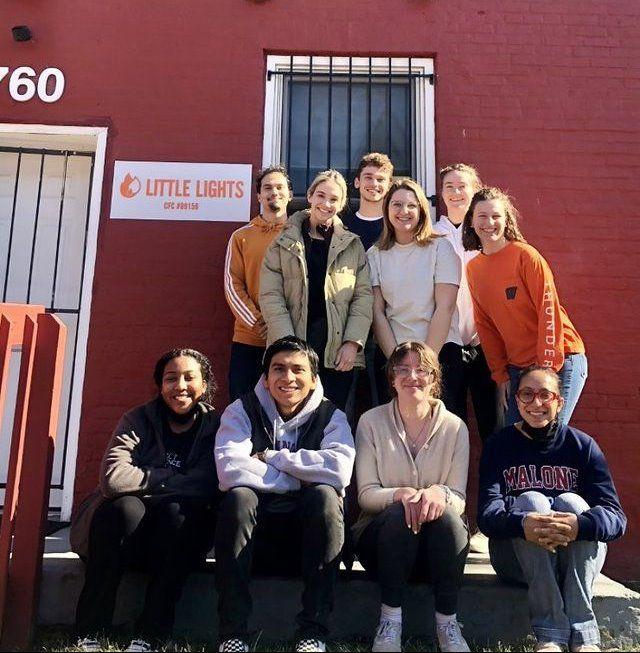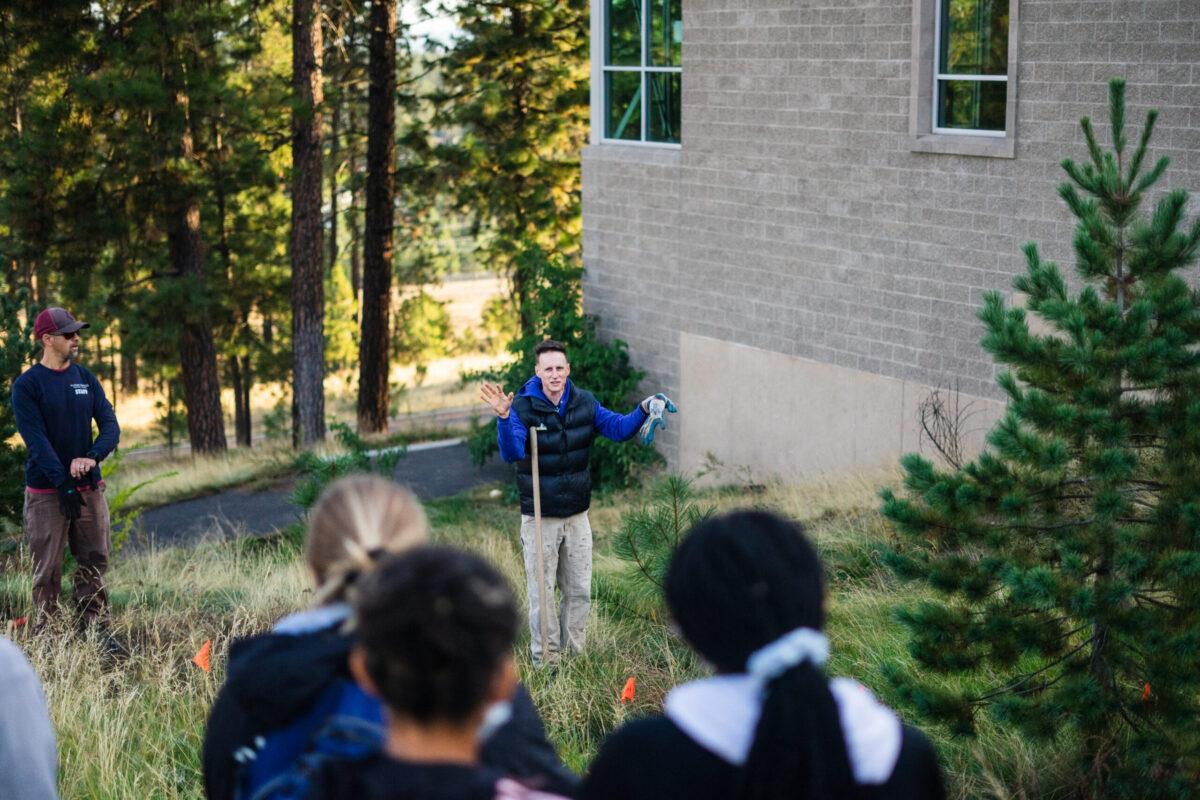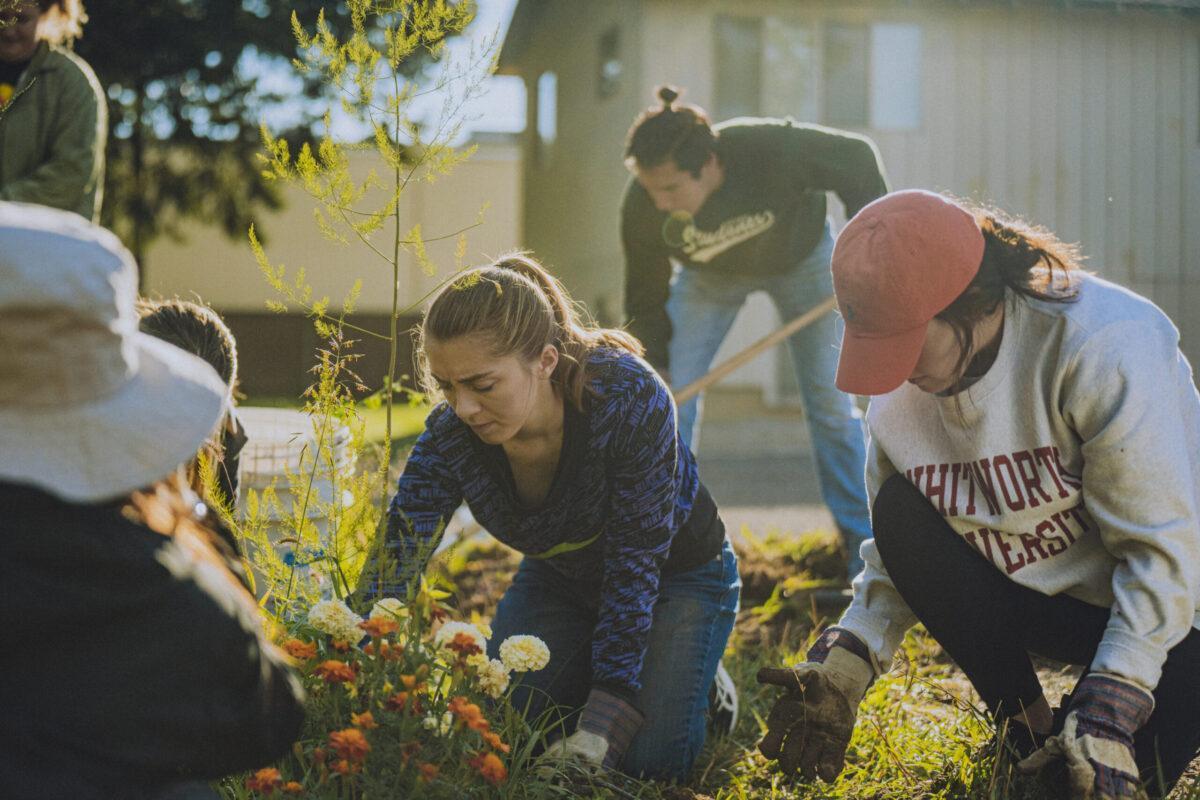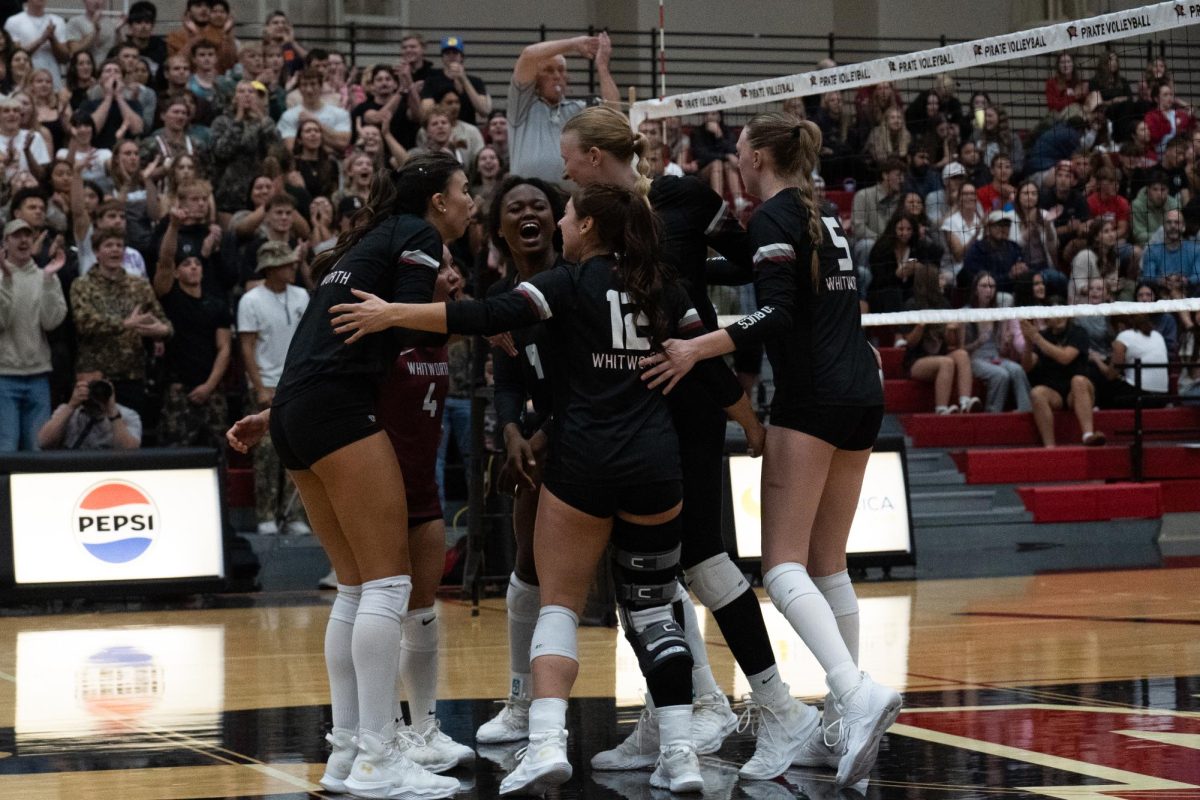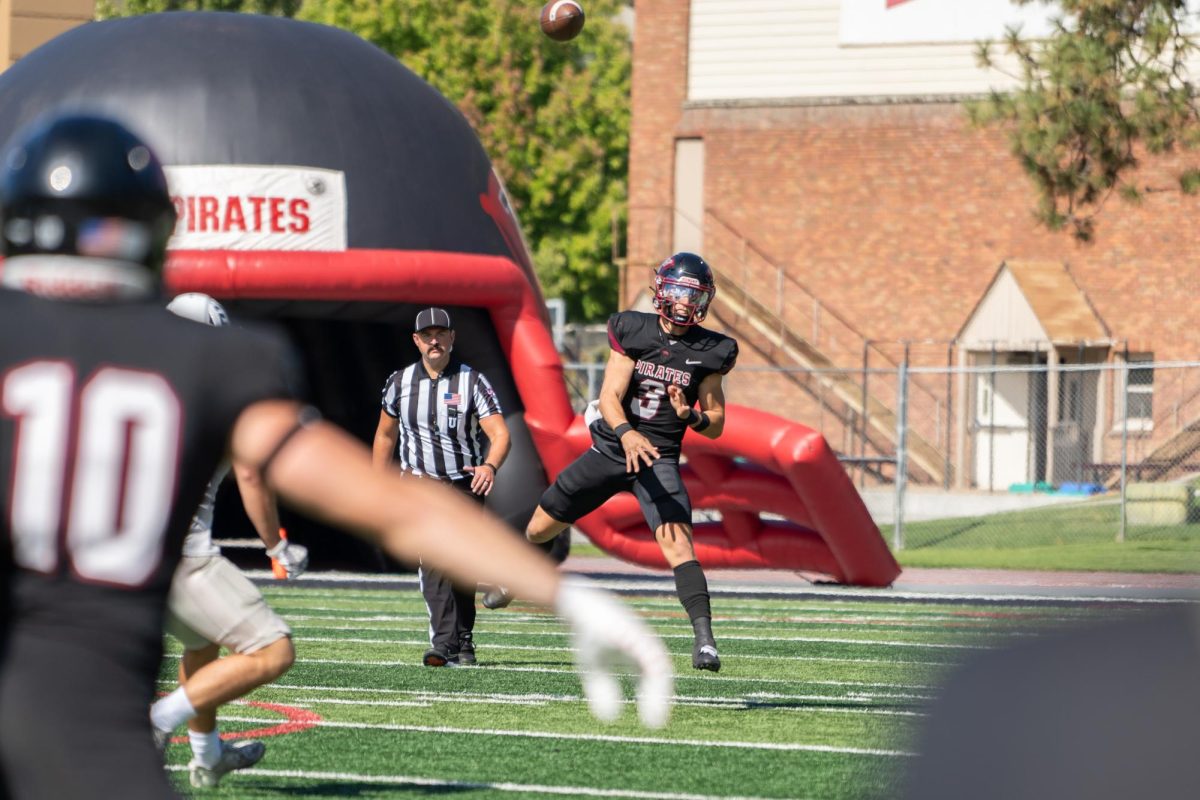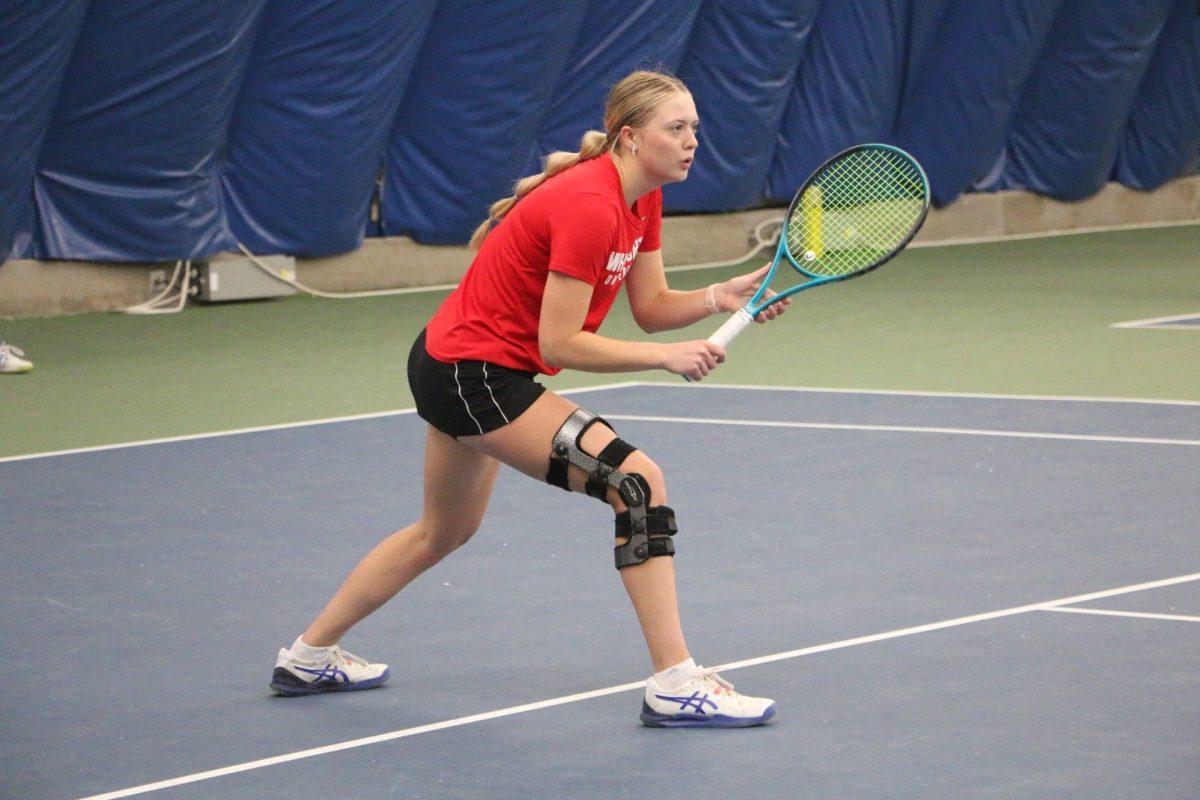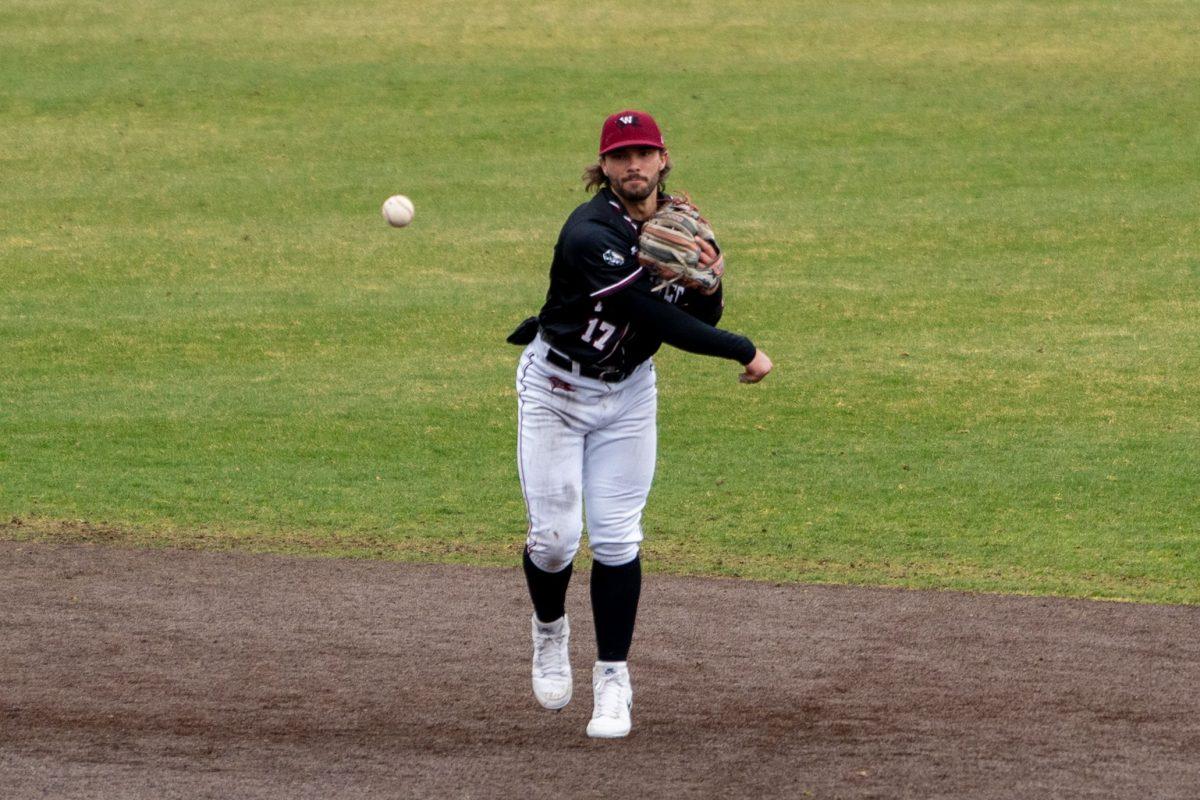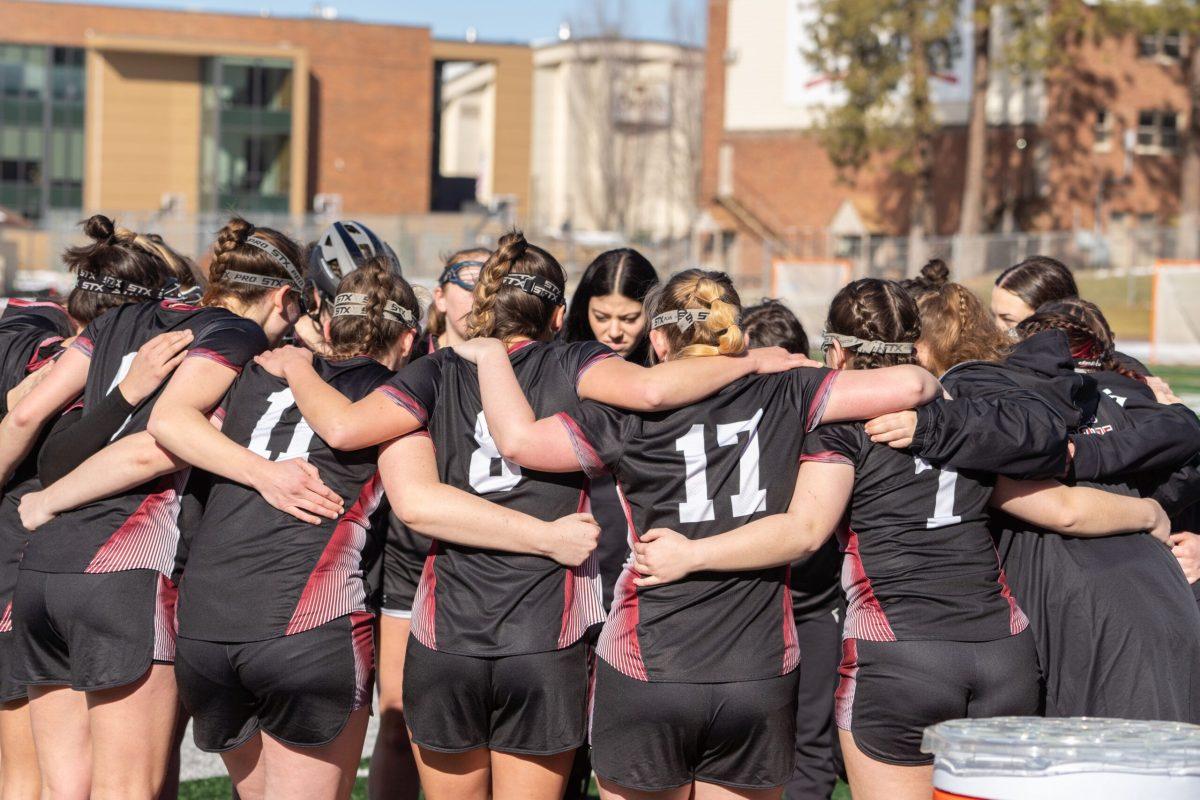
Whitworth University athletes do more than perform well on the field — they perform well in life. “Character development is recognizing that there is a life outside of yourself and giving back and giving to things that are greater than yourselves,” said Tim Demant, Whitworth’s athletic director.
This is why Whitworth sports teams participate in events outside of their games. For example, just before Halloween, athletes participate in an event called “Trick or Treat so Kids can Eat.” This event involves collecting non-perishable food items from people in the community. The collected food is donated to Second Harvest Food bank, located at 1234 E Front Ave., Spokane.
“We collect anywhere from 1,000 to 5,000 pounds of food, and people will leave grocery bags full of stuff on the doorstep when they know we’re coming,” said Demant.
Various teams also go to Fred Meyer to volunteer for the Salvation Army in the hopes of raising money for the holidays. “Things like that obviously benefit those organizations, but I think also benefit our students by being a part of it,” said Demant.
On top of charitable work, the teams also get involved with local schools. For National Reading Day on Mar. 2, the football team will go to a number of elementary schools and read to the students. “It’s cool for the kids, and I think it’s great for our students to be able to do that,” said Demant.
The lacrosse team often goes down to Northwood Middle School during their lunch break to hold lacrosse lessons. “Lacrosse is a growing sport,” said Demant. “It’s just kind of working its way across the country. A lot of the younger kids [who] have never seen it don’t know what to do with it.” Demant sees this as a way to both promote the sport and interact with younger students. According to the Professional Box Lacrosse Association (PBLA), interest in lacrosse has grown 579% overall in the last couple of years overall, and 28% in college athletes.
The tennis team also does a program called “Hit with a Pirate,” where they hold clinics for middle and high school students who want to improve their abilities. “You can sign up to hit with one of our student athletes, and you get to play back and forth, and they’ll give you some pointers and things like that,” said Demant.
The department will also invite youth teams to their games, “just for them to kind of see what the next level looks like, and hopefully inspire them a little bit,” said Demant.
In 2023, the men’s golf team also did a “trunk or treat” event at a local church, undertaken on the initiative of one of the team members. The team took Whitworth’s “pirate truck” there and handed out candy from the back of it, explained Demant. “Instead of sending your kids out in the neighborhood where who knows who’s going to abduct them […] you take them into a parking lot and [get] all these cars lined up and they just go from car to car and people put candy in their bag and simple; it’s short and sweet,” said Demant.
Having one of the athletes propose such an event was not that rare. “A lot of times the connection might come through the student athlete, [where] they’ll approach their coach,” said Demant. “[I also try to encourage] coaches to find opportunities to serve.”
Over the summer one of the Whitworth athletics assistant coaches, who was also enrolled in the university’s master’s program, put together a resource guide of non-profits and projects that student athletes can get involved with.
Demant said this resource guide gives students who are “looking for something that’s two hours, on a Saturday afternoon” the ability to “just kind of flip through and go, ‘Oh, I can go to “blessings under the bridge.” They’re looking for 20 people to do this for two hours on one of these days, and then I can just call them up and say “Hey, Jenny, I noticed that, you know, in our resource guide, you were looking for a group to come in and do this. Is that still available?”'”
This resource guide has really helped coaches find places to start when they are looking to get students involved in a service project, explained Demant. “[It took some of the] workload off of the coach to be able to find a ready-made, easy [projects] for them just to step right into,” said Demant.
The point of all the student outreach is “to benefit who we’re serving, and to then benefit our student athletes — to teach them, ‘Hey, you got gifts that you can use to benefit others,'” said Demant.

